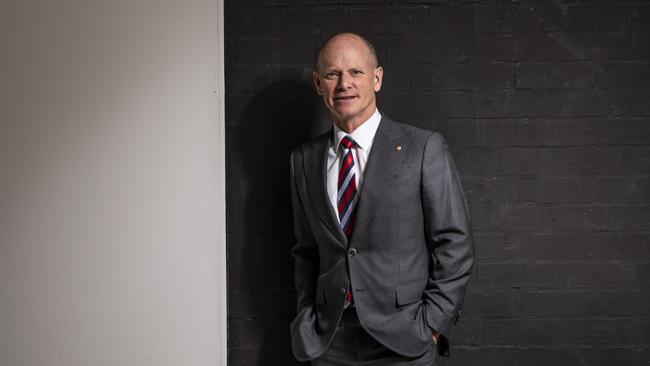Lib Dems face name change after ‘desperate’ election reforms
Campbell Newman concedes his party may need to change its name after tough new election laws passed parliament.

Liberal Democrats federal leader Campbell Newman concedes his party may need to change its name after new election laws passed parliament on Thursday, but says the bipartisan attempt to rein in minor parties will only push more disaffected conservatives his way.
The changes – pushed by Scott Morrison’s right-hand man Ben Morton – will ban parties from using names already taken by other political entities, such as the word “Liberal”, and a new party will need to have 1500 members before it is allowed on a federal ballot.
Labor backed the reforms, which will also reduce pre-poll voting at the next election from three weeks to two, and raise the jail sentence for “interfering with political liberty” to a minimum three years.
Both the libertarian Liberal Democrats and the centrist, climate-focused New Liberals have said the changes will force them to ask the Liberals’ permission to use their similar title.
Mr Newman, a former premier of Queensland, quit the Liberal National Party this month over the Prime Minister’s support for lockdowns and his big spending during the pandemic.
“Maybe we will have to change the name, but we’re not perturbed at all,” Mr Newman said on Thursday. “This is a desperate and unconscionable attempt by the Prime Minister to silence us. He’s clearly scared by the success of the Liberal Democrats in recent weeks. He knows significant numbers of Liberal Party members are deserting the party over lockdowns.”
Mr Newman is running for the Senate in Queensland and is the biggest name the Liberal Democrats have announced so far, as the party attempts to become a bigger force on the political right and take advantage of anti-lockdown and anti-deficit sentiment.
The other major right-wing spoiler to the Coalition, billionaire Clive Palmer’s United Australia Party, will not be affected by the new laws since it now has a representative in parliament: former Liberal Craig Kelly. It therefore automatically gains political party status.




To join the conversation, please log in. Don't have an account? Register
Join the conversation, you are commenting as Logout